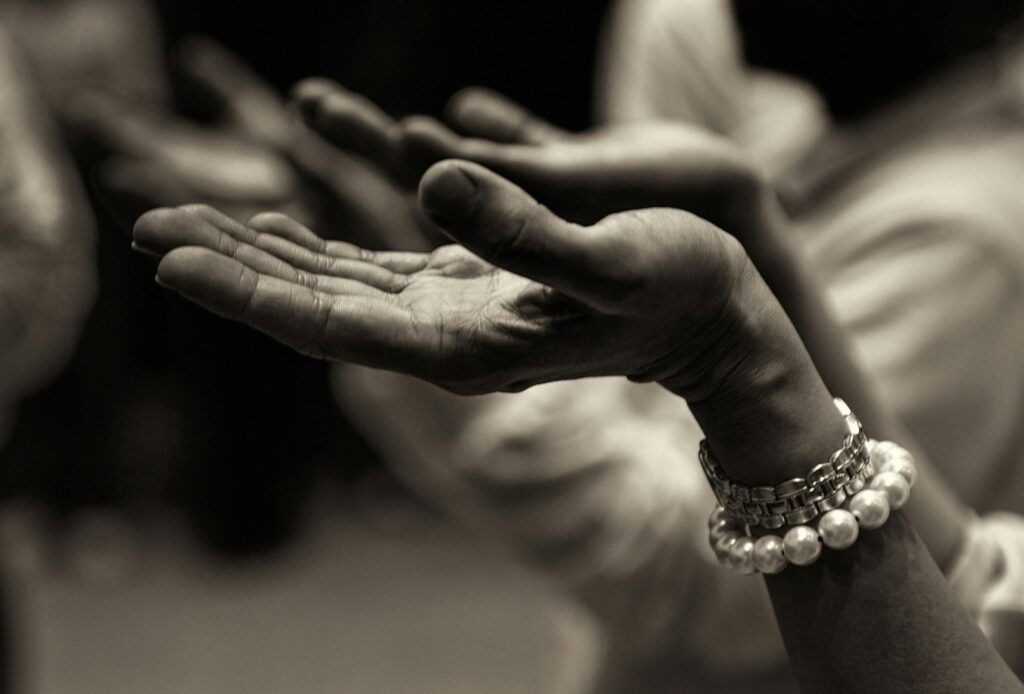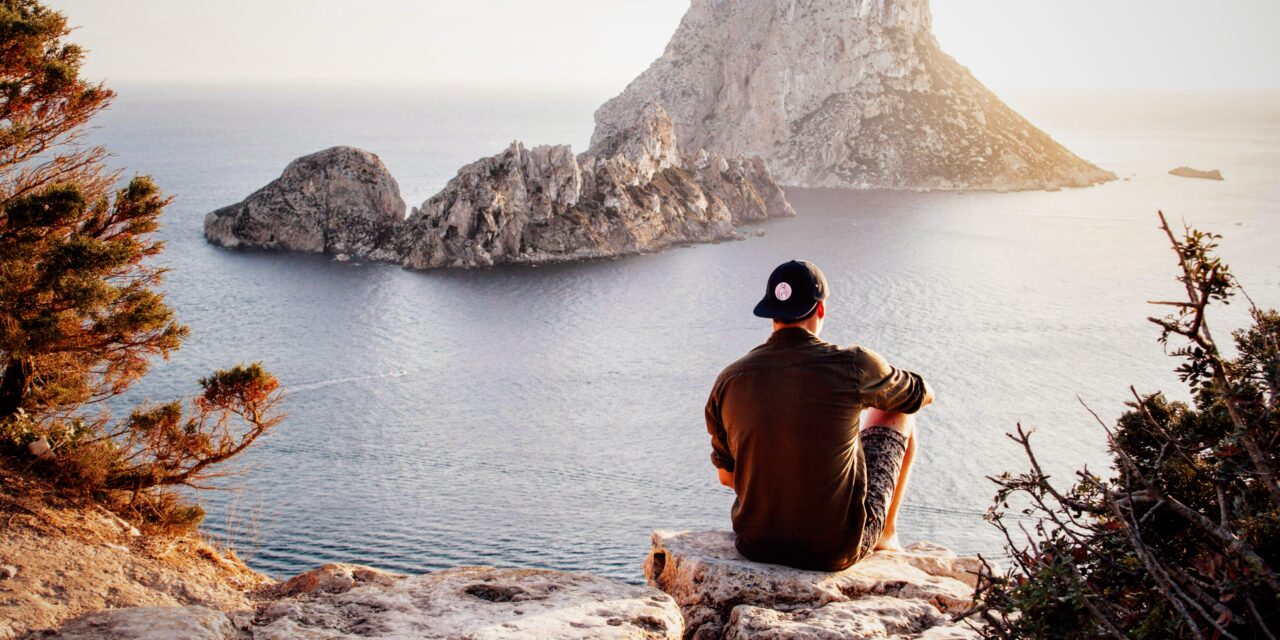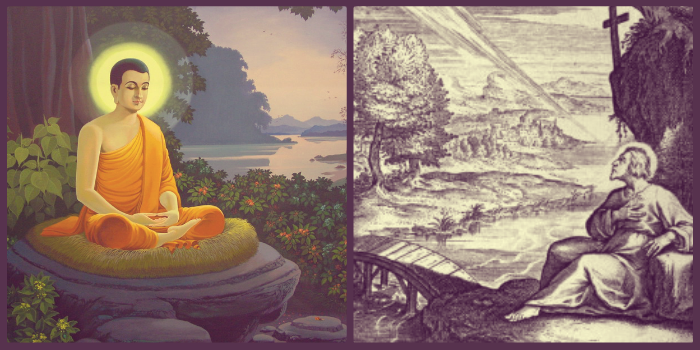How do you spend your time? I catch myself constantly checking my to-do list throughout the day, juggling work and home schedules, desperately seeking moments for what we euphemistically call ‘breaks.’ Our screens pulse with endless notifications, while cultural expectations demand ever-increasing productivity, calling to us minute by minute, day after day. We’ve become so immersed in treating time as a commodity that even our language betrays us – we speak of “spending,” “saving,” and “investing” our time (I did it myself in that first question). The very idea of genuine leisure seems almost heretical in this “economy of time” that coerces us toward constant achievement and productivity. Time is money, right? Yet leisure, understood in its true theological sense, offers us a profound alternative to this economy that—let’s be honest—oppresses more than it frees. I would like to explore five principles that make up a theology of leisure, including from an Ignatian perspective that might help us reclaim what we’ve lost.
 Leisure as Gift
Leisure as Gift
Saint Ignatius saw all as gift from God. True gifts are freely given without the expectation of a return; they are unconditional. Economics operates on the principles of exchange and reciprocity. It struggles with the concept of pure unconditional gift. And because traditional economics are so ingrained in our lives, many of us have a hard time even receiving a gift. We may politely push back or say, “Oh, you shouldn’t have.” Or we may feel now indebted to the giver. The concept of gift upends typical economic principles. It is a kind of resistance or correction to our tendency to see everything in terms of economics. As German philosopher Josef Pieper observes, our tendency to value effort over grace may reveal a deeper resistance to accepting gifts of any kind. Perhaps our difficulty in embracing leisure stems not from being too busy, but from our reluctance to receive time as pure gift rather than achievement.
Ignatius understood that all the gifts given to us by God are for the purpose of growing more deeply in our relationship with God and one another. Both our work and our leisure are gifts, so we ought to always turn things back to how they help us in our relationship with God and neighbor. This invites us to move beyond the extremes of sloth and workaholism – neither of which nurtures the relationships for which we were created. When we truly understand time as gift rather than commodity, we begin to discover a different way of being in the world – one marked not by consumption or production, but by grateful receptivity.
Leisure as Freedom
The recognition of time as gift naturally opens us to a deeper freedom. Ignatius would see this detachment itself as gift – a permission to free ourselves from the fetters of the utilitarian mindset of productivity and achievement. When we understand leisure as freedom, we recognize it as an expression of our fundamental dignity as beings made in God’s image. This freedom allows us to step outside the constant pressure of productivity and remember that our worth comes not from what we produce, but from who we are in relationship with God. True leisure represents a liberation from the mindset that reduces human worth to economic output.
This freedom connects to an ancient wisdom that distinguished between activities containing their purpose in themselves and those that are merely useful. When we engage in genuine leisure, we participate in what the medieval tradition called artes liberales – endeavours valuable not for their utility but for their intrinsic worth. This helps explain why true leisure feels so foreign in our utilitarian age.
Theologian Conor M. Kelly, who has written about leisure, says we have a quantity and quality problem in regards to free time. We have very little of it and the leisure time we do have is filled with not very fulfilling things, like TV and internet surfing. And our utilitarian, productivity-obsessed society often means that many don’t feel like they have the freedom to detach. Kelly writes:
We have few protections for workers, so many — especially those in low-wage jobs — have to work almost all the time just to make ends meet.
Meanwhile, at the other end of the income ladder, businesses frequently feel that if they pay you enough money, you owe them almost all your time, so there’s often little time left over for free time.
Note the times you may have felt guilty enjoying some time off from work. Studies have shown that Americans not only get very few vacation days but very few actually take the vacation that they are given.
Leisure as Contemplation
In this freedom from constant productivity, we begin to see what our busyness often blinds us to – the beautiful reality that God has given us. Seeing this reality is called contemplation. Walter Burghardt famously called contemplation “a long, loving look at the real.” When we step back from consuming and producing, we discover a space where we can find the truth of who we really are. Pieper says,
Leisure implies an attitude of total receptivity toward, and willing immersion in, reality; an openness of
the soul, through which alone may come about those great and blessed insights that no amount of “mental labor”
can ever achieve.
People who are exploited and work long hours or are expected to be available all the time don’t have that luxury to contemplate and to see reality for what it is. Instead they assume life is about productivity, achievement, and drudgery. Contemplation helps us tap into our true selves, our true being in God that we are simply loved not by what we do but simply because we are. Such contemplation invites us into a form of silence that becomes prerequisite for truly hearing – not just external sounds, but the deeper rhythms of existence. This receptive silence stands in stark contrast to our culture’s endless noise and activity.
Thus, leisure is not an escape but actually an entering more deeply into reality. In the Book of Genesis, God rested not from tiredness but to contemplate creation’s goodness. There is nothing wrong with work and creativity, but how often do we get to take a step back and delight in it? We must cease activity sometimes in order to see more clearly the goodness of true reality. Pieper called this contemplative celebration.
 Leisure as Sabbath
Leisure as Sabbath
This contemplative way of seeing reality is so essential to our human flourishing that it becomes more than personal practice – it becomes commandment. Sabbath, in the Judeo-Christian understanding, is about creating intentional sacred time that reflects God’s own pattern of rest. It’s not merely about individual relaxation, though that’s important, but about participating in a divine rhythm that orders our relationship with God, creation, and one another. This communal dimension of Sabbath reminds us that we’re created for relationship, not endless production. It’s a resistance to productivism and a corrective to our utilitarian and individualistic world. Importantly, Sabbath differs from mere ‘breaks’ in our routine. While breaks serve to refresh us for more work, genuine Sabbath invites us into a different quality of time altogether. As Pieper notes, its purpose isn’t to help us function more smoothly but to remain fully human – to look beyond our social functions and glimpse our deeper identity. Sabbath rest is that intentional space-making where we can contemplate the true reality of God.
Sabbath is so counter-intuitive to our modern economy of time that many find it difficult to rest without an agenda. They want to make their leisure time, “productive”. I myself can go into Sabbath time with a list of things I’d like to get done. It becomes another futile exercise of achievement.
Sabbath is that space where we detach ourselves from productivity and cherish the gift of our life. Sabbath is also about our rest within our community. When we rest together we are connected with our larger community identity.
 Leisure as Anticipation
Leisure as Anticipation
These moments of Sabbath rest open us to something even deeper – a beautiful connection between leisure and the kingdom of God. If we make the space to contemplate and see truth in its fullness, then leisure is this anticipation or foretaste of that ultimate communion with God, which Jesus called the kingdom of God. St. Augustine called it our “final Sabbath rest”. True leisure is the opposite of oppression. It’s the opposite of overwork and haste. When we engage in true leisure, we participate in what Jesus described as the kingdom of God breaking into our present moment. Each instance of genuine leisure—whether in contemplative prayer, shared meals with loved ones, or simple delight in creation—offers us a glimpse of what eternal communion with God might be like. These moments reveal that the kingdom isn’t just a future hope but a present reality we can taste and experience now, particularly when we step outside the rushed, commodified nature of modern time.
This anticipation manifests most fully in our ability to truly celebrate – to proclaim, as Pieper suggests, our fundamental approval of reality as good and “in the right order.” When we can rest in such celebration, we participate already in that ultimate communion toward which all leisure points. Our difficulty in achieving genuine leisure may reveal our struggle to trust in this fundamental goodness.
As we navigate our contemporary world of endless notifications and productivity pressure, these five theological principles of leisure offer us an alternative. They remind us that our ultimate identity isn’t found in what we produce but in who we are as beloved children of God. When we embrace leisure as gift, freedom, contemplation, Sabbath, and anticipation, we resist the commodification of time and open ourselves to a deeper reality—one where we can experience the presence of God and authentic communion with others. Perhaps most importantly, we discover that true leisure isn’t an escape from reality but rather an entrance into it, where we can finally see ourselves and our world as God sees us: not as productive units, but as beloved creation worthy of rest, delight, and celebration.
Related posts:
Listen to the podcast version of this post…








